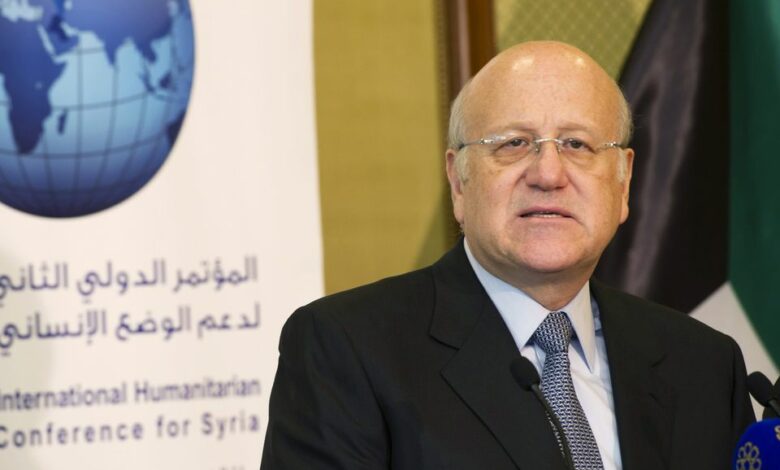
BEIRUT, July 25 (Reuters) – Lebanon’s wealthy businessman and former premier Najib Mikati is poised to be designated prime minister on Monday after winning the support of most major parties to form a new government facing a crippling financial crisis, political sources said.
Earlier, a club of former Lebanese Sunni prime ministers said on Sunday that they endorsed the choice of Mikati, who held the post twice, in yet another attempt to bring Lebanon’s political deadlock to an end.
Among Mikati’s endorsers was veteran politician Saad al-Hariri, who abandoned his effort to form a new government last week after nearly 10 months of failing to agree its makeup with President Michel Aoun.
Hariri’s move marked the culmination of months of conflict over Cabinet posts between him and Aoun, the Maronite Christian head of state who is allied with the Iran-backed armed Shi’ite Muslim group Hezbollah
A senior political source told Reuters most of the country’s main parliamentary blocs agreed on designating Mikati. Unlike many Lebanese leaders, he does not hail from one of the many political dynasties but is one of the country’s most successful entrepreneurs.
Hezbollah and its ally, the Shi’ite Amal movement led by parliament speaker Nabih Berri, were expected to name Mikati, the source added.
Aoun was expected to designate Mikati later in the day once he ends consultations with parliamentary blocs on Monday.
The president is required to nominate the candidate with the biggest level of support among members of parliament.
Once designated the difficult process of forming a new government that secures the agreement of Lebanon’s fractious political class will get underway.
Lebanon has been run by a caretaker administration for nearly a year, while its currency has collapsed, jobs have vanished and banks have frozen accounts. The economic freefall is Lebanon’s worst crisis since the 1975-90 civil war.
In Lebanon’s political system, the post has to be held by a Sunni Muslim, while the presidency is held by a Maronite Christian.
Western governments have been piling pressure on Lebanese politicians to form a government that can set about reforming the corrupt state, threatening sanctions and saying financial support will not flow before reforms begin.
IMAGE: Najib Mikati attends a news conference at the opening session of the Syrian Donors Conference at Bayan Palace Liberation Hall in Kuwait City January 15, 2014.




